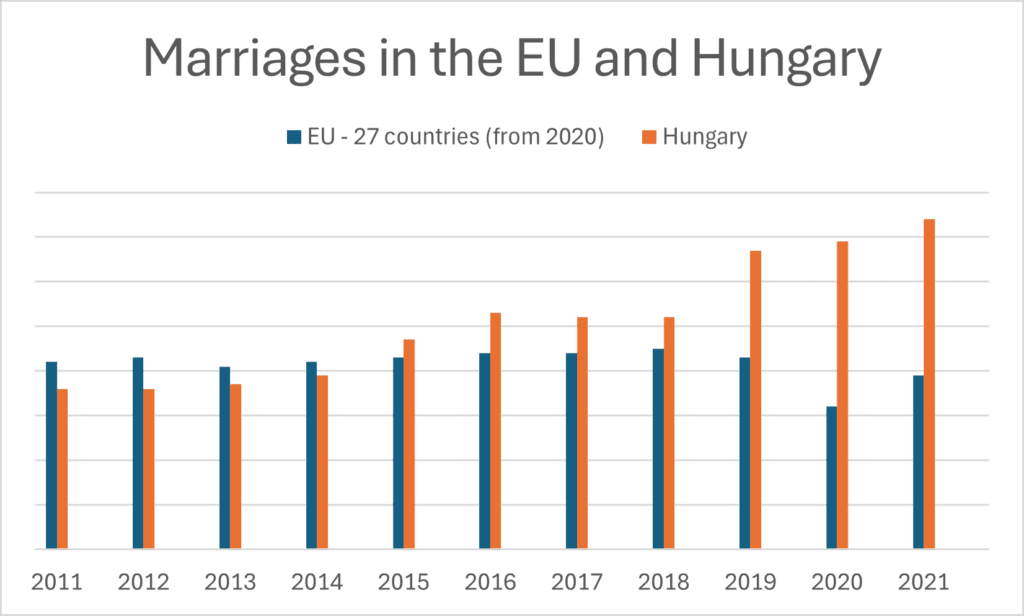Since 2014, the number of marriages in Hungary has been rising steadily, and since 2018, Hungary has been ranked first among EU countries in this regard, according to an analysis based on Eurostat data by the Oeconomus Economic Research Foundation, released on the occasion of Marriage Week.
The marriage rate in Hungary has exceeded the European average since the mid-2010s and has been increasing dynamically since then. According to Eurostat figures, the number of marriages per 1,000 inhabitants in Hungary has been rising steadily, while in the European Union, it has essentially stagnated and then declined in 2020 due to the coronavirus epidemic. Even in the year of the epidemic, the trend in Hungary was upwards.
While in 2011 Hungary’s marriage rate was below the EU average, by 2015 it surpassed it. The analysis shows that since 2018, it has consistently ranked first in the EU,
also thanks to targeted government policies making marriage popular again.
This stands in contrast to the situation in Western Europe where there is a downward trend.

In terms of demographics, government support for the younger age group may be crucial, as marrying at a younger age often correlates with higher birth rates. Additionally, it is also noteworthy that numerous international studies have found that marriage contributes to good health and leads to longer life spans.
The Oeconomus analysis also reveals that Hungarian women get married for the first time earlier than the EU average, at 29.7 years compared to 31.2 years in the EU. Oeconomus suggests that historical factors may also contribute to this trend, with Europeans historically marrying at a younger age in countries east of the so-called St Petersburg–Trieste line, while marrying at an older age in countries west of the line, based on demographic indicators dating back to the 19th century. Consequently,
Hungary stands out as the EU Member State with the lowest postponement in the date of women’s first marriage.
As reported by Hungarian Conservative, this year’s Marriage Week commenced on Sunday, 11 February, and will continue until 18 February. In their statement, the organizers wrote that this year’s motto for the event series is ‘constant renewal.’ Throughout the series of events, the organizers will explore how couples can, in today’s rapidly changing environment, focus on each other, grow together, renew their marriage, find new common goals, and adapt together to new life situations.
The national coordinator of Marriage Week, Kornél Herjeczki, director of the Harmat Publishing House, stated that the movement aims to provide impetus and encouragement for couples to play an active initiating role in renewing their relationship. The coordinator stressed that this year’s Marriage Week intends not only to address young couples but also to encourage those facing entirely new challenges in the second half of their marriage, such as having to adapt to new goals and lifestyles after their children ‘fly the nest.’
Related articles:








